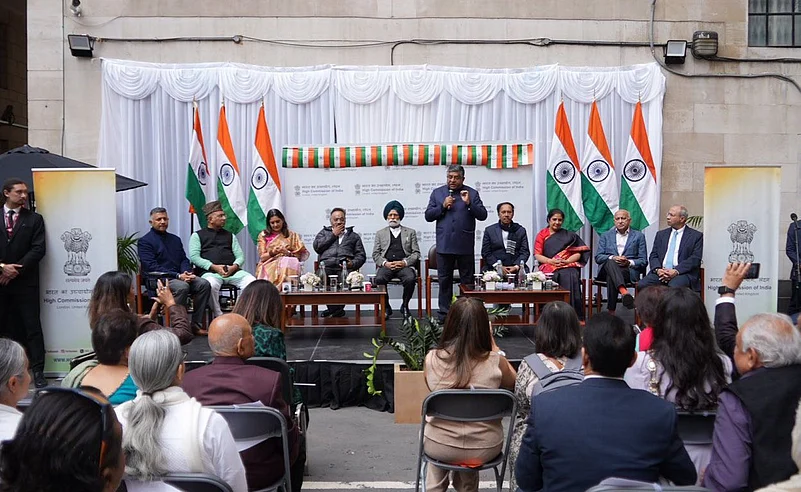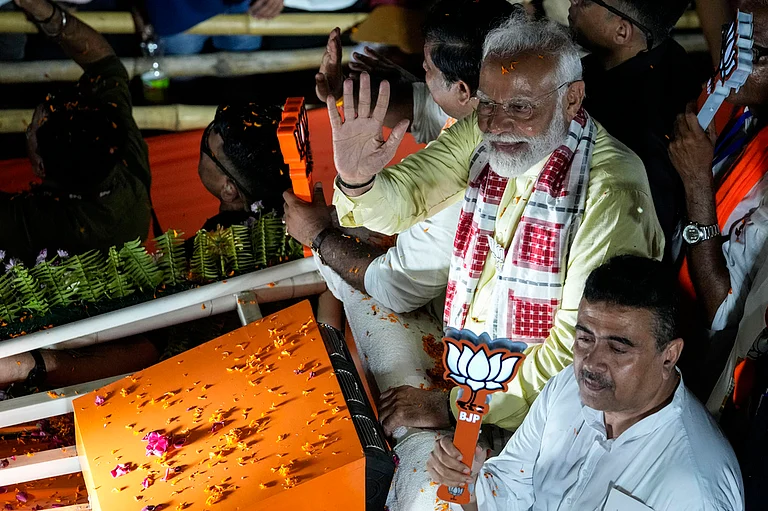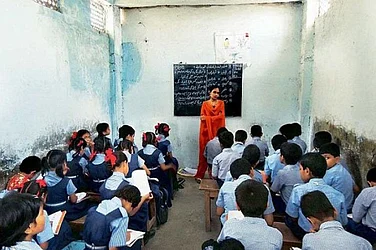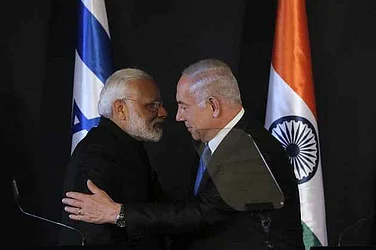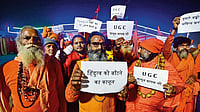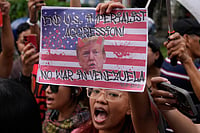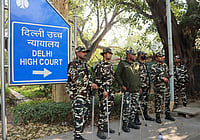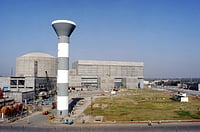In the aftermath of Operation Sindoor, Prime Minister Narendra Modi launched a peculiar diplomatic initiative: dispatching seven “all-party” delegations of MPs to global capitals. Ostensibly a gesture of national unity and outreach, it came amid disturbing silence over the Pahalgam massacre, where 26 Indian tourists were killed in broad daylight by alleged Pakistani terrorists. Basic questions remain unanswered: how did the attackers cross a heavily guarded border, reach deep into one of the world’s most militarised zones, and vanish without a trace? No group has claimed responsibility, no credible investigation has been disclosed, and both the airstrikes on Pakistan and the sudden ceasefire remain cloaked in secrecy.
In this opaque context, the diplomatic push appears more as a calculated distraction than genuine outreach. It is beyond distraction; the usual political game the Bharatiya Janata Party (BJP) plays day in and day out. Even as a foreign policy move, it was marred by controversy—the government handpicked MPs for the delegations without consulting opposition parties, bypassing parliamentary norms. This unilateralism undercut the credibility of the “all-party” claim, exposing the exercise as political theatre. Instead of fostering unity, it reinforced the impression of a regime staging consensus to serve its own image, rather than addressing the crisis.
Diplomatic Outreach to Serve Politics
By now, to even raise such questions betrays political naivety. For the past 11 years, it has been abundantly clear that nothing Modi does is devoid of political calculation. His every move is cloaked in the rhetoric of nationalism and patriotism, but at its core lies the logic of personal power. He has crafted a polity so attuned to his persona that the nuances of strategy no longer matter—whatever he does is presumed to be in the national interest. Demonetisation was an early test of this charisma: people stood in scorching queues, forfeiting daily wages to exchange their hard-earned money, yet echoed his line—that this was little pain borne for the nation’s good. Since then, he has ruled like an emperor, shielded from accountability, untroubled by questions.
The diplomatic vacuum exposed during the crisis pointed to serious flaws in our diplomatic strategies. It was not merely the absence of a united front that led other countries to remain indifferent—or even to side with Pakistan. Rather, the problem lies in the fact that, for the past decade, the world has seen only one face of India: that of Prime Minister Modi, who has come to represent the country in its entirety, be it a trade negotiation or diplomacy. In such a context, the sudden deployment of all-party delegations betrays a belated attempt to paper over cracks. However, this is not a failure that can be remedied through such knee-jerk measures. What is needed is a deep introspection and candid analyses by experts who could chalk out a long-term, coordinated diplomatic strategy. The ad hoc and improvised nature of this initiative rather smacks of more of the same thing—‘the leader knows all’ hubris. It verily undermines its stated purpose. It is difficult to believe that such an inconsistent outreach effort could offer even the remotest solution to the crisis.
The so-called all-party delegations consisted of 48 hand-picked MPs from various parties—including Shashi Tharoor (Congress), Supriya Sule (NCP) and Kanimozhi (DMK)—tasked with engaging foreign governments, think tanks and diaspora groups to counter Pakistan’s narrative and present India’s security concerns abroad. Since all opposition parties craved information, one doubts whether these MPs had full information regarding the Pahalgam massacre, Operation Sindoor, or the terms of the ceasefire. The bigger question is how they are supposed to perform their role. With no diplomatic training or policy mandate, and little clarity on whom they are meant to influence, what purpose this exercise would really serve?
The initiative, like any other by this government, appears to serve a political purpose. By involving opposition figures—often without prior consultation, as seen in the Trinamool Congress’s initial protest—the BJP seeks to stage a performance of national unity that blunts criticism and co-opts rival voices into tacitly endorsing government decisions. The delegations’ engagements have been largely limited to mid-tier officials and diaspora audiences, suggesting their primary utility lies in shaping domestic optics rather than influencing international policy. As such, what is framed as a diplomatic exercise reveals itself as a carefully choreographed political manoeuvre aimed at consolidating the ruling party’s image at home.
Diplomacy is a Serious Affair
It is high time the government realised that diplomacy is a serious affair. In this conflict with Pakistan, several international observers noted a striking asymmetry in global diplomatic alignments. While Pakistan successfully rallied overt support from allies such as China, Turkey, Iran, and even secured measured sympathy from segments of the Global South, India appeared diplomatically isolated. Beijing predictably echoed Islamabad's stance, reiterating its position on Kashmir and calling for restraint—but framing India as the provocateur. Turkey amplified Pakistan’s narrative by invoking human rights and religious solidarity, particularly over Kashmir. In contrast, India struggled to gain unequivocal backing even from traditional partners. The US response remained muted and transactional, while European powers offered only generic calls for de-escalation without endorsing India’s position. Analysts across global think tanks—such as the International Crisis Group and Carnegie—have remarked that Pakistan played its cards with surprising deftness, casting itself as a responsible actor seeking dialogue. Meanwhile, India’s opaque handling of the Pahalgam episode, the abrupt ceasefire, and the over-politicised dispatch of ill-prepared MP delegations undermined its credibility. This diplomatic imbalance reflects not just the substance of the conflict but the erosion of India’s institutional diplomacy under a personality-driven regime more focused on optics than strategic alignment.
In the contemporary international order, diplomacy is no longer the exclusive domain of backdoor conversations or personal emissaries. It has evolved into a professional, institutional, and often technocratic field—rooted in expertise, long-term strategy, and consistency across political regimes. Modern foreign policy requires coherence and institutional continuity because bilateral and multilateral relationships are cumulative in nature, built over decades through trust, negotiation, and credibility. States employ professional diplomatic services, rely on policy think tanks, and adhere to norms of international conduct that value transparency, protocol, and institutional memory. As Henry Kissinger noted, “foreign policy is not merely the pursuit of national interest but also the art of managing continuity and change” in a system where nations must anticipate the expectations and responses of others to maintain global stability.
India’s diplomatic tradition, shaped through Nehruvian internationalism and institutionalised by successive governments, long operated on these premises. The Ministry of External Affairs (MEA), supported by the Indian Foreign Service (IFS), functioned as the backbone of Indian diplomacy, offering consistency even amidst domestic political change. Parliamentary standing committees, strategic policy forums like the National Security Council, and Track II diplomacy all played important roles in harmonising India’s global messaging with its democratic ethos. Foreign policy, in this architecture, was understood to be a domain above partisan spectacle, demanding bipartisan consensus and informed deliberation.
This architecture has been steadily dismantled under Prime Minister Modi, whose tenure marks a shift toward leader-centric, personality-driven diplomacy. Modi’s foreign engagements are often characterised by theatricality—hug diplomacy, mass diaspora events, and public declarations—that prioritise spectacle over substance. Whether in Madison Square Garden or Wembley Stadium, the focus has been less on nuanced bilateral dialogue and more on consolidating his image as a global strongman. The MEA has increasingly been relegated to the background, with Modi and his inner circle dominating foreign policy announcements and initiatives. As political analyst Happymon Jacob argues, this “hyper-personalised diplomacy sidelines professional diplomats, reducing the state’s foreign policy to a projection of the prime minister’s persona.”
Moreover, decisions with significant foreign policy implications are made unilaterally, without institutional checks or parliamentary oversight. The handling of critical events such as the Pahalgam massacre, the so-called Operation Sindoor, and the sudden ceasefire with Pakistan illustrates this opacity. Even senior MPs included in diplomatic delegations had no access to basic information on these matters, let alone the authority or expertise to engage in meaningful dialogue abroad. These delegations, rather than genuine instruments of foreign policy, appear more as mechanisms of domestic political management—intended to signal unity while consolidating the ruling party’s narrative. This reflects what Tharoor has described as the “domestication of foreign policy”, where external engagement is shaped primarily by internal political considerations. Ironically, Tharoor is part of the jamboree and contributing very seriously to the embarrassment of his party.
Under Modi, institutional diplomacy has given way to a centralised, authoritarian style that sidelines democratic norms. Foreign policy is no longer a careful, national undertaking but a tool for nationalist spectacle. Substance is replaced by showmanship, and professional diplomacy by leader-centric theatrics, undermining the principles of restraint and consistency.
The Long-term Damage
The decision to dispatch all-party delegations of MPs abroad, under the pretext of counter-terror diplomacy, reflects less of a genuine foreign policy initiative and more of a calculated political stratagem by Modi. It is increasingly clear that these MPs—many of whom had no prior briefing on the Pahalgam episode, Operation Sindoor, or the ceasefire—were not expected to accomplish substantive diplomatic goals. Rather, the move appears tailored to sow discord within opposition ranks. The inclusion of figures like Tharoor has already ignited tensions within the Congress, with visible discomfort over his enthusiastic participation. Modi’s approach exploits these intra-party fissures, encouraging defections or realignments by dangling symbolic prestige or future nominations, while projecting a facade of national unity.
A parallel and equally significant objective is the engagement with the Indian diaspora, which has long been an integral part of Modi’s political strategy. Diaspora communities not only offer financial contributions and logistical support during elections, but also help shape international public opinion and media narratives favourable to the BJP. Modi’s grand overseas events—such as “Howdy Modi” and “Namaste Trump”—have demonstrated how diasporic mobilisation can be weaponised for domestic political capital. By sending MPs to interact with these communities under the banner of national security, Modi aims to consolidate this transnational support base and project India’s unity under his leadership, even if it is manufactured. Thus, the entire episode serves as a domestic political spectacle disguised as global diplomacy—leveraging a national tragedy not for justice or clarity, but for partisan advantage and image consolidation.
Since 2014, Modi has systematically personalised India’s foreign policy, sidelining institutional processes in favour of a centralised, image-driven model that conflates the nation’s interests with the persona of the leader. The Ministry of External Affairs has been reduced to an implementing body, with decision-making power concentrated in the Prime Minister’s Office. Parliament has mostly been bypassed on key issues like the China border crisis and Kashmir, turning foreign policy into a domain of executive spectacle rather than deliberative strategy.
This politicisation has caused long-term damage to national interests. Diplomacy being reduced to symbolic optics—diaspora rallies, one-on-one summits, and militaristic posturing—geared more toward domestic political consumption than building sustainable international relationships. Career diplomats and strategic experts have been sidelined in favour of pliant political narratives. The all-party MPs tour abroad is a further extension of this theatricality—choreographed not for genuine diplomatic engagement, but to project Modi as the supreme unifier of national will while sowing discord within opposition ranks. In hollowing out institutional memory and continuity, Modi’s approach jeopardises India’s long-term foreign policy stability, leaving it vulnerable to global shifts, leadership transitions, and diplomatic missteps that no cult of personality can rectify.
(Views expressed are personal)







